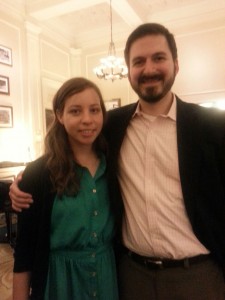EFF filed a lawsuit last Tuesday against the National Security Agency for its mass collection of Verizon customers’ phone records. First Unitarian Church of Los Angeles v. National Security Agency was filed on behalf of a diverse group of 19 organizations and focuses on an important First Amendment right: the right of association. Protecting associational freedom is increasingly important in the context of the government’s collection of metadata — pieces of information, such as the numbers a person calls, which, when put together, reveal information about that person’s associations, including organizations he or she belongs to.
Background: The First Amendment Freedom of Association
The First Amendment right of association is based on the freedom to assemble without government interference. In a landmark 1958 case, NAACP v. Alabama, the Supreme Court recognized that government access to people’s associations creates a “chilling effect” — it makes people less likely to associate with certain organizations. In NAACP v. Alabama, the Court held that it would violate NAACP members’ First Amendment rights for the state to force the organization to turn over its membership lists. The right to organize and assemble without government interference is so fundamental because these associations are forums for political expression and the advancement of ideas — the type of speech the First Amendment was designed to protect.
While discussions about data privacy tend to focus on the Fourth Amendment, First Amendment rights are equally implicated in electronic surveillance. The ability to keep one’s associations private is critical to preserving the right to freely associate.
The case against the NSA
EFF’s case argues that when the NSA collects data about the numbers a person calls and how often, that data can reveal a person’s protected associations, and the surveillance constitutes an interference with the right of association. To illustrate that point, EFF joined with 19 different organizations from across the political spectrum that focus on a range of issues, many of which conflict with one another. These organizations include churches, marijuana legalization advocates, and gun owners’ groups, to name a few. Many members of these organizations hold controversial views and depend on the ability to express those views as a group, but fear individual exposure.
What do the plaintiffs have to hide?
The potential chilling effects and the need for privacy are perhaps best expressed by Gene Hoffman, Chairman of Calguns Foundation, a gun ownership rights group. The group runs a hotline for gun owners who have questions about California gun laws. “California is a difficult place to live if you’re a gun owner,” Hoffman said in a press conference on EFF’s new case. “People are turning to our hotline specifically because they didn’t want to have a record created.” He mentioned that the people who have the most at stake might be those who belong to multiple organizations with potentially conflicting views: “If you are a supporter of marijuana legalization…and you were known to have phoned both [our hotline] and NORML [a marijuana legalization advocacy group], it could cause people to ask questions you didn’t want to have asked.”
New developments: Congress rejects legislation to curtail NSA surveillance
In a close vote yesterday, the U.S. House of Representatives voted against an amendment that would have cut funding for the NSA’s mass surveillance of call records. By striking funding for bulk data collection, the bipartisan amendment would have required Foreign Intelligence Surveillance Court orders to pertain to a person already under investigation. The current legal authority doesn’t require the FISA court to make a showing of suspicion that a person has engaged in terrorism or any illegal activity before it collects data. This lack of standards has allowed the NSA to engage in the mass collection of all Americans’ phone call records. The amendment failed in an extremely close vote of 205 to 217 and garnered both Democratic and Republican support.
Off-topic: Cute pictures of ducks
It’s not uncommon to have three dogs in the office on any given day, but last week one of EFF’s technologists brought these ducklings to work.






